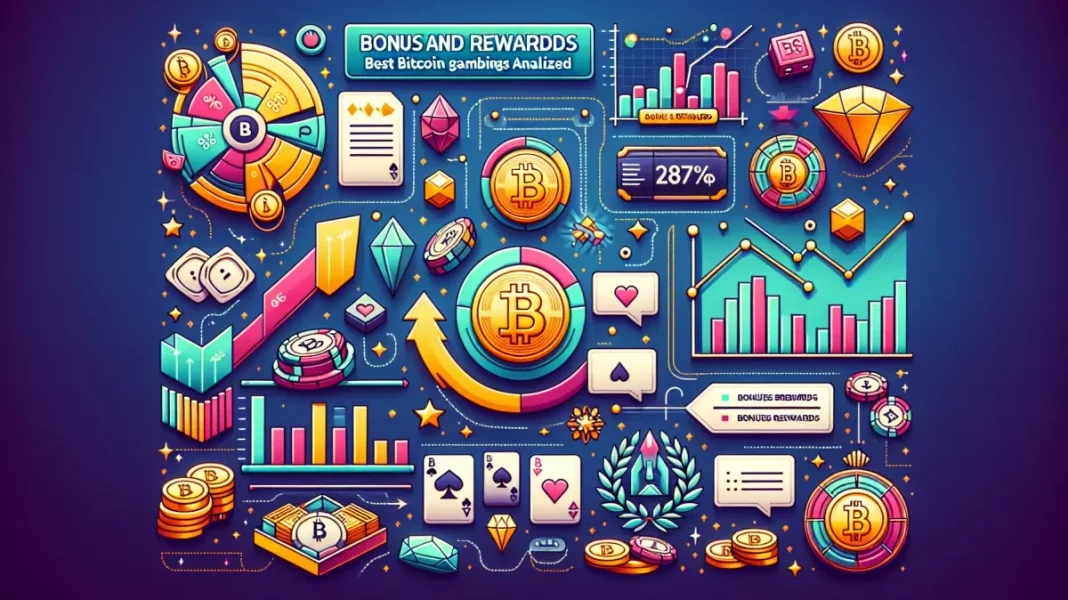Financial transactions have been arguably the greatest benefactor of digital innovation. From the advent of online banking to the eruption of cryptocurrencies, advancements have revolutionized the way individuals navigate monetary exchanges. One industry that’s steadily capitalizing on digital disruption is gambling, through the union of blockchain technology, peer-to-peer (P2P) betting, and traditional bookmaking.
P2P betting platforms have been the latest innovation to pivot the trajectory of the gambling industry. As opposed to traditional betting structures where the held stakes are managed and dictated by the bookmaker, P2P betting democratizes this process by allowing participants to bet directly against each other.
The incorporation of blockchain into this P2P betting ecosystem, an offshoot of the cryptocurrency wave led by Bitcoin, adds another layer of intrigue to the equation. Blockchain’s decentralized nature makes it an intriguing proposition – from securing transactions to ensuring process transparency. But what does this convergence mean for traditional bookmakers? Let’s investigate.
Eroding Monopolies
Traditional bookmaking models typically operate under highly-centralized, controlled systems. These bookmakers have full autonomy over the betting process – setting odds, accepting bets, and distributing winnings. P2P betting platforms, however, serve to disrupt this framework by cutting out the middleman.
Take Betfair, a successful implementation of the P2P betting model that acts as an exchange rather than a bookmaker. It allows bettors to propose and accept bets themselves. It minimizes the house advantage, maximizes the potential for higher payouts, and is playing a significant role in eroding the monopoly of traditional bookmakers.
Blockchain technology serves to further amplify this disruption. By decentralizing transaction processes, it institutes a level of transparency and fairness that traditional bookmaking often struggles to deliver. Blockchain implementation eliminates the need for trust between the parties involved, resulting in an ecosystem where bettors can experience full transparency and fast, secure transactions.
Intensified Security
Security remains a critical concern for gamblers worldwide which blockchain technology expertly addresses. All blockchain transactions are encrypted, meaning the players’ data and money are significantly safer than with traditional bookmaking techniques.
Moreover, traditional bookmakers are vulnerable to hacking due to their centralized systems. In contrast, the decentralized nature of blockchain makes it virtually immune to hacking. This security feature positions blockchain as an ideal solution in the P2P betting space.
Fostering Fairness
When placing a bet through a traditional bookmaker, a bettor must trust that the odds and payouts have been calculated fairly. Unfortunately, history tells us that this trust can often be exploited, leading to rigged games or fraudulent activities. Blockchain, with its public ledger system, hold great potential in remedying these concerns.
With the integration of blockchain into P2P betting platforms, every bet placed and the accompanying odds can be recorded in a tamper-proof system, visible to all participants. This ensures total fairness, as any discrepancy can be quickly spotted and rectified.
New Revenue Models
The convergence of blockchain and P2P betting also presents unique opportunities for monetizing the betting process. Traditional bookmakers make money irrespective of the betting result, due to overround – the profit margin factored into the odds. In contrast, P2P platforms such as Betfair make money by charging a commission on winnings.
In conclusion, P2P betting, powered by blockchain, is reshaping the global landscape of gambling. The technology offers several advantages over traditional bookmaking – bolstering security, transparency, and fairness, presenting compelling arguments for its acceptance in mainstream betting. While traditional bookmakers will continue to adapt to stay competitive, the disruptive tide of blockchain and P2P betting will keep stirring the waters.
To stay updated on how this narrative unfolds, keep a close eye on our news section on bitcoingambling.org.
Sources
:1. Innovate Gaming, “Peer-To-Peer Betting: Revolution on the Horizon?” www.innovategaming.com/p2p-betting.
2. British Broadcasting Corporation, “How blockchain technology is changing the gambling industry” www.bbc.com/news/business/blockchain-gambling.
3. Betfair Official Website, “P2P Betting model” www.betfair.com/howitworks.
4. Coin Telegraph, “How Will Blockchain Revolutionize the Betting Industry?” www.cointelegraph.com/blockchain-betting-industry.
5. American Gaming Association, “Online Gambling Security” www.americangaming.org/security.



